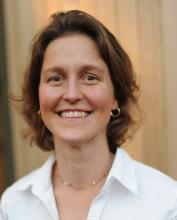The Science of Happiness
Mar 17, 2016
Psychology used to be mostly concerned with unhappiness, treating the wounded, the traumatized, or the pathological. But now there is an emerging science called positive psychology that focuses on how ordinary people can cultivate positive life qualities and be happy. Of course, to study happiness scientifically, we need to know exactly what happiness is and how we can measure it.
I’m reminded here of St. Augustine’s famous insight about time. He knows what it is when no one asks him, but as soon as he has to explain it to another, he does not know. Similarly for happiness—we know whether or not we’re happy, even if we don't know exactly how to define it.




Comments (5)
Harold G. Neuman
Monday, October 29, 2018 -- 11:21 AM
See my remarks from 2016. ISee my remarks from 2016. I stand by those, adding only: we know what we are taught; we ARE what we have learned. {That is the crucial point in critically thinking about modernity: if we accept at face value the maudlin virtues of fitting in; being 'trendy'; gobbling up mass/popular culture as though it were ambrosia; and adopting for our own the shallowness of situational ethics, we are surely beyond help and perhaps beyond recognition as humans.}
Harold G. Neuman
Tuesday, November 27, 2018 -- 11:55 AM
Unrelated (maybe) topic: IUnrelated (maybe) topic: I was listening to public radio, several late nights ago. The program was interesting: narrated by Susan Sarandon, it was called the Science of Gratitude. Check it out, (it 'sorta' relates to your Archive on science of happiness).
Cordially, Neuman
pattyblack
Tuesday, February 20, 2024 -- 3:10 PM
Delving into the science ofDelving into the science of happiness through a response essay unlocks profound insights into human well-being. Understanding the intricacies of happiness research and its implications for daily life becomes accessible with the option to buy response essay. By exploring theories, empirical evidence, and practical applications, such essays offer a comprehensive view of what it means to lead a fulfilling and joyful existence in today's world.
Alyssa
Monday, April 1, 2024 -- 7:46 AM
As a psychologistAs a psychologist specializing in positive psychology, I delve into the science of happiness. It encompasses understanding factors like gratitude, resilience, and social connections cox internet service that contribute to overall well-being. By applying evidence-based interventions, individuals can cultivate sustainable happiness, leading to a more fulfilling and meaningful life.
Olivia20
Wednesday, April 23, 2025 -- 7:41 AM
Emiliana’s insight thatEmiliana’s insight that happiness can be increased through connection and compassion feels especially relevant in today’s often isolating digital world. Her perspective that even relationships with pets or religious figures can fill this role offers a nuanced take on how varied the sources of fulfillment can be. For all things trending, The House Detective News has got you covered!
And while the OKRA model is not yet a scientific gold standard, its inclusion of moral elements, like kindness, does open up a fascinating debate about whether happiness can—or should—be morally neutral.